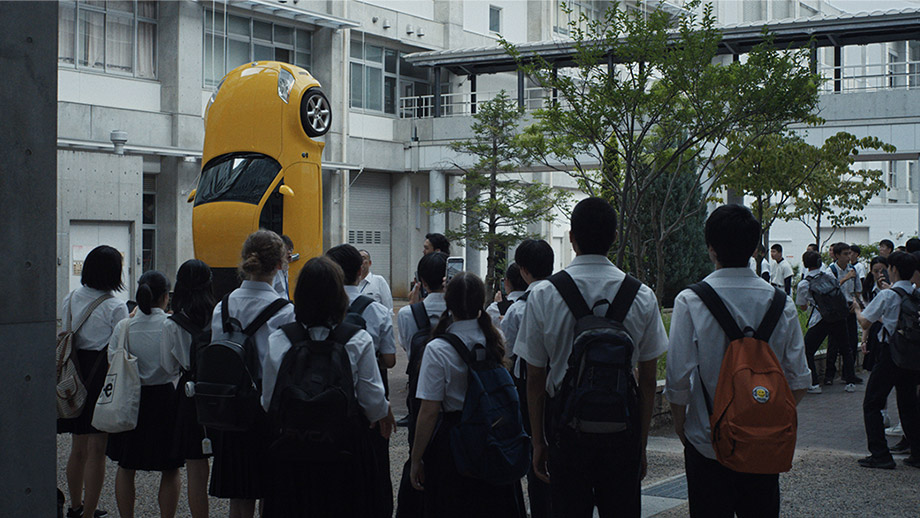M, 113 minutes
4 Stars
Review by © Jane Freebury
In this teenage resistance caper set in Tokyo in the near future the authority figures, young and old, come in for a hard time. A bunch of adolescents about to graduate from high school are in a defiant mood. Their high spirits are infectious, and we are up for it. Yet this super stylish film, handsomely shot and backed by a beautiful score, is so much more than a moment of teen rebellion.
It is striking from the start. The opening location shot is trained on a city in darkness, dotted at random with pinpoints of red light. If they are traffic lights, it fits the mood of the bunch of senior high schoolers facing a liminal moment in their lives who feel blocked at every turn.
First they try to bluff their way into a dance club to lose themselves to the thumping techno beat. After posing as deliverymen, buddies Yuta (Hayato Kurihara) and Kou (Yukito Hidaka) manage to get in. The euphoria is short-lived, though, when a police raid closes the rave down. While the officers are checking IDs someone throws the lights and the gang escape into the dark streets, up for more. It isn’t long before they have managed to find entrée elsewhere, by duping a security guard with a cat’s meow on a cell phone.
The gang of five are a disparate bunch, more diverse than wider Japanese society. Yuta and Ata (Yuta Hayashi) are Japanese, while Kou is ethnically Korean. Ming (Shina Peng), the most earnestly political of the group, is Chinese/Taiwanese, and Tom (Arazi) is African American. They hang out at the music appreciation club at school, while fomenting resistance to the authoritarianism and xenophobia that are trending across society.
No doubt, an imminent once-in-a century earthquake expected to hit the country is contributing to the febrile atmosphere at large. There are ominous tremors and warning sirens every now and then, in an emergency that has gifted the Prime Minister with the opportunity to introduce a raft of security measures that tighten social controls.
A super stylish film, handsomely shot and backed by a beautiful score,
that is so much more than a moment of teen rebellion
It’s the authority figure closer to home, the school principal, a lower-order autocrat who the students really can’t stand. For them, Nagai (Shiro Sano) represents everything they don’t wish to become. Kill me if I grow up to be like him, they say to each other. The evening out ends with a statement to that effect when they turn the principal’s car, his pride and joy, into a ludicrous spectacle. A prestigious sportscar can be made to look ridiculous. The principal responds to the obvious takedown. But what exactly is it saying?
Nagai reacts without hesitation, having an electronic surveillance system installed across the campus. Reflecting the authoritarianism that pervades society at large, his high school is a microcosm where broader social issues are played out.
Happyend is a first feature from talented emerging writer-director Neo Sora who works between New York and Tokyo. Key collaborators here, composer Lia Ouyang Rusli, and cinematographer, Bill Kirstein, worked with him on his last project, a documentary about the late Ryuichi Sakamoto. The legendary composer, famous for his work on films like Merry Christmas, Mr Lawrence, and The Last Emperor, was Neo’s father.
This futuristic coming-of-age story set in fraught and uncertain times remains playful and leaves the future open for its young characters. The way the film’s bold anthemic score is woven into the drama reflects an affinity for the meaning that music can convey, and that’s hardly surprising. Happyend announces an exciting new talent.
Jane’s reviews are also published on Rotten Tomatoes
Feature image courtesy Plainwater Films
